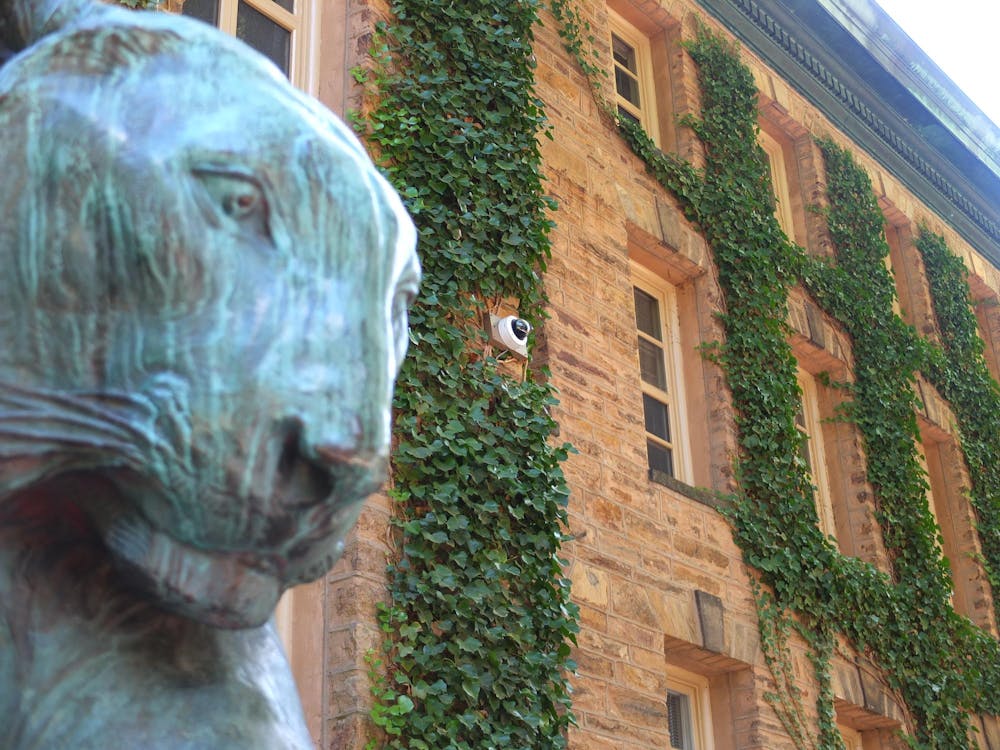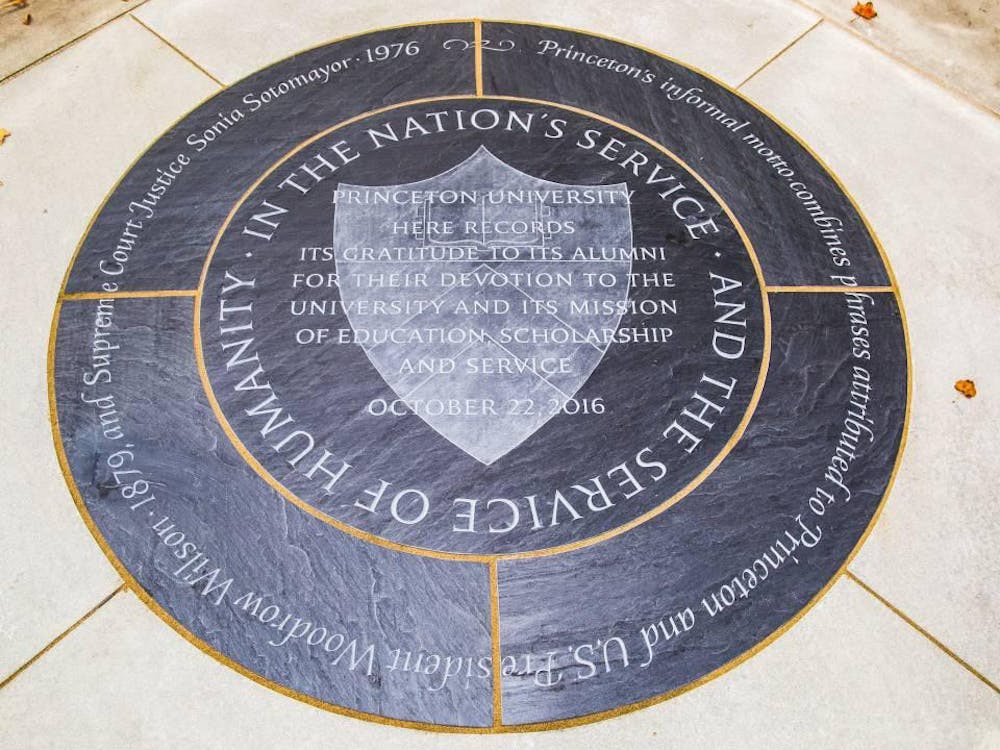Princeton rolled out a new protest website two weeks ago, expanding their “time, place, and manner” restrictions to more times, more places, and more manners. By placing explicit bans on some of the most common forms of political demonstration, tightening language on obscure and inconsistently-applied existing restrictions, and departing from a constructive approach of speaking with protestors, the policies intend to stoke fear and chill protest.
We, the undersigned member organizations of the Princeton Progressive Coalition, oppose these tightened restrictions, reject the University’s hostile approach to protest, and call on all who support free speech and free expression to challenge these protest bans.
Among the new rules is a ban on protests on Cannon Green and on Prospect House’s grounds. This ban pushes protests out of sight of key, high-traffic locations. Prospect House is often home to “private wetsuits dinners” and was the site of anti-apartheid protests, and Cannon Green, which previously operated as one of the locations of the Princeton Gaza Solidarity Encampment, has been the site of protests dating back to at least the 1970s. Restricting these locations represents a sharp departure from precedent to limit the scope of free expression, and the University has acknowledged it: An original version of the rules also barred protests on the lawns of Nassau Hall until walking it back, acknowledging the long history of protests at the location.
Furthermore, the projection of light or imagery without prior approval, the operation of overnight encampments (which was previously just “generally prohibited”) and the use of amplified sound, musical instruments, or noisemakers in the context of protest during business hours are explicitly barred.
The protest tactics the University has targeted are often less disruptive than activities that are protected by University policy. Using hate speech during a seminar is profoundly disruptive, but it is protected when not directed at an individual. Playing a musical instrument at a protest is not protected, despite it almost certainly being less threatening. Is this because Princeton sees assembly and protest as a lesser right than speech? Is this because the University cares only when the disruption affects powerful administrators, not marginalized students?
The University frames these restrictions as a restatement of existing policy. However, some of these policies were rarely implemented in practice – meaning that “clarifying” existing policy essentially amounts to establishing new rules. Many were inconsistently (if ever) enforced, such as the prohibition of protest on Cannon Green. As Dean of Undergraduate Students, Regan Crotty ’00 conceded during a Sept. 15 USG meeting that Cannon Green has technically been designated a prohibited protest location, even though it has nonetheless hosted many protests over the past decades. Other policies, such as the ban on chalking surfaces, were hidden in places like the “Conference and Event Services” website, and enforced inconsistently. For instance, the University enforced the ban when it removed gay pride chalking in 1995, but did not do so for chalk designs made for USG candidates. In the last 30 years, the University has not made this policy clearer nor enforced it. Choosing to “clarify” rules that have never fully been enforced is de facto an imposition of new rules, and paves the way for the University to enact unreasonable punishment.
The new policies would also prohibit acts of protest that are non-disruptive and meaningful expressions of political opinion. Actions as simple as the Students for Prison Education, Abolition, and Reform (SPEAR)’s annual protest against solitary confinement, during which a demonstrator sits on a chair in a tape box outside for 23 hours, would be banned because tape on University “grounds and walkways” are no longer permitted. SPEAR’s demonstration has raised awareness around an important social issue for over a decade, but its future is now uncertain.
This change in policy jeopardizes the University’s own precedent of constructively engaging with students, even during particularly disruptive actions. When the Black Justice League conducted a 33-hour sit-in in the office of President Christopher Eisgruber ‘83 in 2015, the University chose to hear the demonstrators’ demands rather than punish them. When more than 200 students occupied Nassau Hall overnight to protest the University’s investments in South Africa in 1978, the University met with the students, and opted to give them a disciplinary warning.
These restrictions help the administration move away from a constructive approach to student protest. Before the release of the new protest website, officials had already begun to bypass dialogue and move directly to punishment for many recently-used protest actions. For example, the University initially took action to withhold two degrees from students who participated in a peaceful, temporary disruption of a talk by President Eisgruber during Reunions. Even as the students were later allowed to graduate, the crackdown has damaged student trust. Expanding the grounds on which individuals can violate University policy, makes it easier for the University to opt for punishment instead of dialogue.
Despite what the University might claim, these new prohibitions are clearly a direct response to the protests in solidarity with Palestine last semester: the updated list of prohibited actions reads like a list of the actions taken in the spring (using noisemakers, protesting on Cannon Green, and projecting light onto buildings). Its prohibitions can therefore be counted as part of a larger crackdown on free expression across university campuses following student campus protests in solidarity with Palestine.
Perhaps the University thinks the Princeton community will accept limitations on speech. We will not acquiesce. We recognize the University is attempting to silence us all. It will not succeed.
Alan Plotz and Alex Norbrook on behalf of the Princeton Progressive Coalition.

Alliance of Jewish Progressives
Princeton Israeli Aphartheid Divest
Princeton Pride Alliance
Princeton Students for Justice in Palestine
Princeton Young Democratic Socialists of America
Students for Prison Education, Abolition and Reform (SPEAR)
Sunrise Princeton








